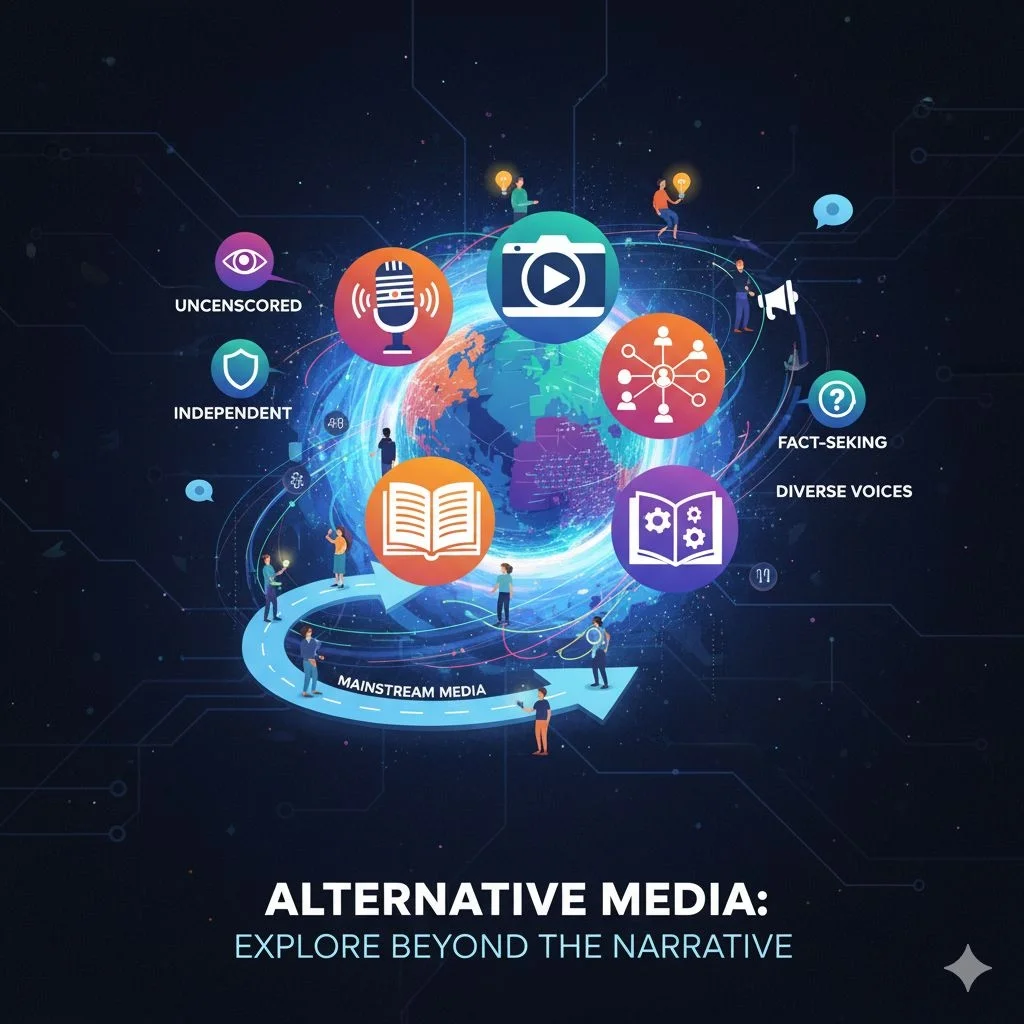Explore how investigative journalism podcasts and alternative media protect free speech and sustain democratic dialogue.
When open debate and factual reporting are challenged, the investigative journalism podcast has become a vital force in preserving truth and transparency. As traditional media faces distrust and fragmentation, independent audio platforms are helping citizens navigate complex realities with depth, accuracy, and accountability.
Shifting Media Landscapes in a Polarized Era
Public confidence in traditional news has declined worldwide. Many audiences feel mainstream coverage often echoes political or corporate agendas, leaving gaps in truth and perspective.
This void has given rise to alternative media, where journalists, researchers, and independent creators pursue stories that might otherwise go untold.
Listeners increasingly turn to investigative journalism podcasts for context and depth that quick headlines cannot deliver. These podcasts thrive because they allow time, evidence, and personal storytelling to illuminate subjects often buried under daily news cycles.
Why Alternative Media Matters in Modern Democracies
For democracy to function, citizens must have access to credible, diverse, and uncensored information. When traditional newsrooms shrink and gatekeeping intensifies, independent outlets become essential sources for civic engagement.
Key reasons why alternative and independent media remain crucial include:
-
Transparency: They provide information without excessive editorial filtering.
-
Plurality: Different viewpoints create space for balanced public dialogue.
-
Accountability: Independent investigations can expose misconduct or misrepresentation by powerful institutions.
-
Civic education: Long-form storytelling enables deeper understanding of policy, governance, and social issues.
These elements strengthen democratic participation by helping citizens form opinions based on facts, not filtered narratives.
Investigative Journalism Podcasts: The Return of Long-Form Truth
The podcast format has redefined journalism’s ability to inform. By blending narrative with research, investigative journalism podcasts engage listeners through complex investigations while maintaining accuracy and empathy.
Unlike short news briefs, these programs provide context, data, and diverse perspectives over time. They give journalists the freedom to revisit evidence, interview key figures, and trace the evolution of an issue without the constraints of broadcast schedules.
Why Podcasts Work So Effectively for Investigative Reporting
-
Extended format: Allows exploration of stories beyond a single news cycle.
-
Accessible platform: Audio storytelling reaches global audiences on demand.
-
Human connection: Voice and tone create trust between journalists and listeners.
-
Archival value: Episodes can document unfolding events for future reference.
The best investigative podcasts prioritize verification and neutrality, ensuring audiences can draw their own conclusions based on documented facts rather than opinion.
The Role of Political Podcasts in Public Discourse
Parallel to investigative shows, the political podcast has grown into a key platform for analysis and public debate. Rather than focusing on quick soundbites, these discussions explore long-term patterns in governance, policy, and ideology.
Listeners often engage with multiple perspectives, challenging their own assumptions and broadening understanding. This shift reflects a larger societal trend—people seeking substance over spectacle.
Political podcasts serve several important functions:
-
Encouraging informed citizenship through open debate.
-
Offering historical and cultural context behind current events.
-
Creating space for cross-ideological dialogue.
-
Building archives of public opinion that reflect diverse social realities.
When journalism and discussion merge, citizens gain more tools to interpret decisions that affect their lives.
The Strain on Free Speech and Information Access
Democracies today face a complex challenge: the balance between regulating harmful content and protecting open expression. Digital platforms often act as both gatekeepers and distributors of information, using algorithms that may unintentionally suppress certain viewpoints.
Independent journalists frequently encounter obstacles—from restricted visibility online to limited funding opportunities. Despite these pressures, alternative media continues to adapt through transparency, collaboration, and direct audience engagement.
Free speech, in this sense, is not just about expression—it’s about access. Citizens must be able to hear multiple sides of an issue, understand evidence, and form conclusions without undue interference.
Rebuilding Trust Through Authentic Storytelling
One reason investigative journalism podcasts resonate so deeply is their authenticity. Instead of presenting facts as static, they take listeners through the process—how sources are verified, how evidence is gathered, and where uncertainty remains.
This approach restores trust in journalism. It treats audiences as participants in the search for truth, not just passive recipients of news. By showing transparency in the reporting process, these podcasts demonstrate accountability in action.
Key traits of trustworthy investigative storytelling include:
-
Clear sourcing and citation.
-
Logical sequence of evidence.
-
Inclusion of multiple viewpoints.
-
Willingness to acknowledge limitations or unknowns.
Such practices strengthen the credibility of both journalists and their platforms.
The Audience as an Active Participant
Unlike traditional broadcasting, where content flows one way, podcasts encourage dialogue. Listeners can respond, question, and share insights directly with creators through digital platforms. This interaction creates an informed community rather than a passive audience.
The political podcast format, in particular, thrives on this engagement. Citizens discuss issues across borders, compare policies, and analyze their governments’ actions collectively. This participatory culture fosters awareness that democracy requires not just freedom of expression—but also active listening.
The Broader Impact on Civic Awareness
Investigative and political audio formats contribute to civic literacy by making complex information accessible.
From environmental policy to social justice movements, they explain issues in language people understand, bridging the gap between experts and the public.
This accessibility helps combat misinformation by clarifying facts and sources. Listeners learn how to evaluate claims critically, promoting a more resilient and informed electorate.
The Future of Independent Journalism
As technology evolves, so will the forms of public dialogue. Artificial intelligence, data journalism, and decentralized media platforms will continue to reshape how information spreads.
Yet the core principle remains unchanged: truth-seeking journalism must stay independent of manipulation or censorship.
Investigative journalism podcasts and political podcasts exemplify how media can evolve without losing integrity. Their future will depend on sustained public interest, critical listening, and ethical storytelling.
A democracy under strain does not merely need more information—it needs better information. And that begins with journalists willing to investigate, listeners willing to engage, and systems willing to protect free expression for all.






